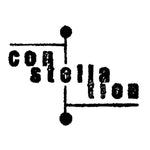Pat Jordache

Discography
"jordache is a compartmentalized being of sorts, adorning itself with jewellery as it stretches through time, taking pages from past lives and messengers above and beyond. stored travellers and outside minds alike, he creates fodder which serves as an enticer before he emulcifies the passer-by with rigid construct and robust infrastructure. accountable at best, volatile at least. five or more off-duty problem solvers are on deck to operate and facilitate what looks unbelievable on paper."
- Philip k. Chanel, friend and collaborator of the author
Future Songs is named for the author’s belief in the prophetic power of imagery dredged from the subconscious. Though usually opaque, these lyrical symbols over time come to reveal themselves as a blueprint for a self-manifesting destiny originating in their author’s psyche. And so this record was written as an exercise in self-actualization, with Jordache’s subconscious providing the oblique clues that led him out of a time of painful solitude.
Opacity also plays a role in Jordache’s production. Frequencies omitted from the audio spectrum literally demand an active participation on the part of the listener’s imagination. This process short-circuits the passive consumption endemic to advanced capitalism’s commodification of art. It also has the dual effect of empowering the listener, bringing them into a participatory mindstate.
Jordache himself was affected in just such a way, deeply inspired by the music of good friend and past collaborator Merrill Garbus who performs under the pseudonym tUnE-yArDs. The duo’s previous band dissolved after Garbus’ departure for California to pursue love and her new musical venture. Jordache’s schedule was further cleared after a mass firing by the leader of his job band.
Newly employed in the minimum wage class, Jordache was disoriented in a society that teaches upward mobility and attaches artistic merit to fiscal success. Ultimately, a return to a life with music detached from money proved the best thing for him. He discovered the freedom of creating outside of a rigorous touring schedule and the production standards of a commercial music industry. He began feverish work on a self-recorded album, one that would ultimately devour three inherited computers and a four-track.
During this time, he also reconnected to a newly rejuvenated music and art community in Montreal. In a town constantly renewing itself with students and ex-pats, a fresh crop of youth was reinventing the city. A new era of after-hours show parties, jam space recording studios and general do-it-yourself-ism served as a valuable incubator to a nascent music and art scene. A spirit of co-operation and mutual support permeated this atmosphere, creating a fostering bubble of creativity that decentralizes power away from for-profit tastemakers and industry elsewhere.
Future Songs was marked complete in the late winter of 2010 when Jordache’s computer was stolen from a roadside smoked meat shop in the city’s West Island. Despite lengthy efforts toward relocating the missing machine (involving several staged purchase attempts with Kijiji sellers of similar models), the sessions and masters were lost. The only remaining backup, an 160 kbps MP3 version of the record, was released on cassette and Bandcamp as the first incarnation of Future Songs. The record quickly found a following and musicians began petitioning Jordache to join him in a live ensemble.
To that point, his shows had been solo ventures, total re-workings of the recorded music using a DD-3 pedal capable of looping only 1.4 seconds of sound. These minimalist arrangements soon came to be amplified by the explosive percussion efforts of duelling drummers Phillip Karneef, Jeffrey Malecki and Thom Gillies. Rory Seydel then joined the group on guitar and a more faithful interpretation of the recorded songs was finally possible.
Each of these men was rechristened with the last name Jordache, a symbolic joining of family in fraternity, much like the Voguing Houses of gay Black and Latino culture in 1970s New York. Chanel, symbolic mother/wife to counterpart Jordache retained his name in the rechristening.
Several tours through the thriving house and loft show circuit of the United States showed the band that the goings on in their city were not unique, that they were members of a larger cultural shift toward self-empowered and highly localized art scenes across the continent. A cementing of the JORDACHE live show finally led to Constellation records re-issuing Future Songs through larger distribution networks.
Wave file format backup mixes eventually surfaced on a forgotten mediafire account, pre-dating the MP3 home-master. These were re-mastered for the Constellation release of the record, a symbolic scrubbing away of one layer of production murk, an overture towards inclusiveness and a concession to a broader audience.
Jordache and his group continue to play shows and are also working on a new body of work exploring sexuality, leaning away from more anthemic moods toward ones more personal and sensual.

